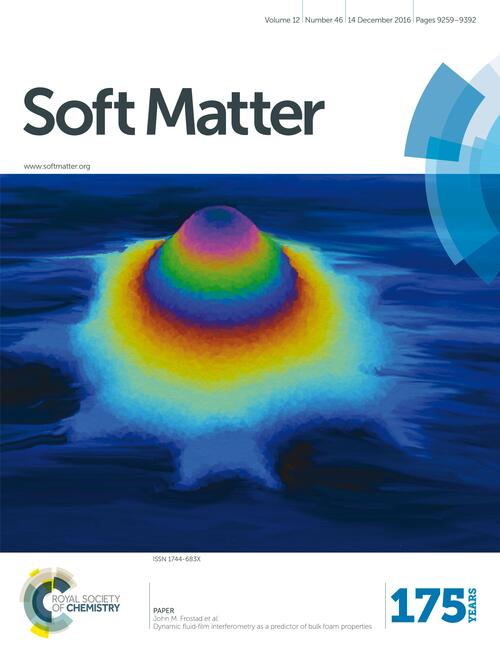Rheology of Complex Liquids
Rheology of Complex Liquids

Overview
Rheology is an interdisciplinary branch of physics that brings together fluid mechanics and material science with the aim of understanding how soft materials respond to deformation and flow. Soft materials include polymers, surfactants, proteins, dispersions, and living systems, and are characterized by very large ranges of length and time scales. For example, polymer chains are typically on the order of tens of nanometers but possess relaxation times that range from microseconds to tens of seconds depending on concentration. Bioflms, on the other hand, are space-spanning structures that develop viscoelastic responses over the course of many days.
Rheological measurements are used to develop constitutive models that connect the deformations that occur within pliable, soft materials when stresses are applied. These models can then be incorporated within the equations of fluid mechanics to describe processing operations used in industries producing pharmaceuticals, and healthcare products (proteins, biofilms, and lipids), personal and food products, and polymers.
Learning Goals
The mechanics of soft matter are distinguished by nonlinearities and the importance of relaxation phenomena. These characteristics are developed by understanding the concept of viscoelasticity and its molecular origins. The measurement of viscoelasticity and the transition from linear to nonlinear responses will be developed. Experimental methods used for both shearing and elongational deformations are introduced along with measurement techniques and how to overcome experimental difficulties. Applications are drawn from a variety of industries ranging from polymers, foams, emulsions, biofilms, and living mammalian cells.
Seminar Schedule
The course will consist of a combination of lectures and tours of laboratories in Beijing where research into complex liquids is being conducted. Opportunities for students to present their own research will also be provided. The lectures will be held on Tuesday, Wednesday and Thursday mornings for 2-3 hours per session. Local tours will primarily occur on Mondays and Fridays.
Week 1: The key rheological phenomena of shear thinning, shear thickening, and elasticity will be described. The stress and strain tensors will be introduced, and the concept of linear viscoelasticity will be presented. The material functions of viscosity, modulus, and compliance will be introduced. The generalized viscous liquid will be described along with the neo-Hookean model of elasticity. Microstructural bases of viscoelasticity will be developed for major classes of complex fluids.
Week 2: Experimental methods for shear and extensional rheometry will be described. Nonlinear viscoelasticity will be discussed. Dispersion rheology and the microstructural basis of shear thinning and shear thickening in these systems will be reviewed. The microstructural basis of nonlinear phenomena are developed. The rheological responses of yield stress liquids and flocculated dispersions will be presented.
Week 3: Interfacial rheology and the stability of foams and emulsions will be described along with microrheometry methods. The course will conclude with presentations of research problems by students in the class.
Application Process
A seminar application is required plus an official Stanford transcript via Axess. Please submit transcript and the application online at the same time. The deadline to apply is March 29, 2019. Applications received after the deadline will be considered for the waitlist. Transcripts via Axess should be submitted to SCPKU Manager.
For More Information
Please contact Professor Fuller with "SCPKU Seminar" as your email subject. More information about SCPKU's Graduate Seminar Program can be found here.

